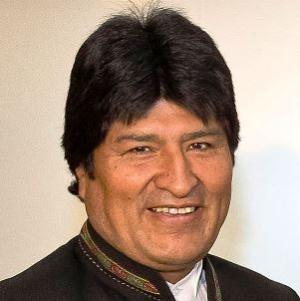Ohio voters have rejected the ResponsibleOhio initiative, which would have created a "monopoly" on legal marijuana cultivation.
More Indian tribes move toward okaying medical marijuana, a North Dakota initiative petition gets its language okayed, and more.
SWAT teams killed three drug suspects this month, and a South Carolina cops will walk free after gunning down unarmed teenager Zach Hammond in July.
Another week, another sticky-fingered cop, another cop protecting dealers, and another jailer smuggling dope.
LEAP endorses Ohio's Issue 3, another tribe wants in on the medical marijuana action, a West Virginia mayor calls fro drug decriminalization, backers of Bolivia's president are using coca as campaign contributions, and more.
A leading Republican presidential contender favors letting the states decide on pot policy, another Indian tribe wants to get in on the action, Mexican villagers turn the tables on crooked federal cops, and more.
It's election day in Ohio, a big money California legalization initiative rolls out, there's another national poll with a majority for pot legalization, Ireland takes big steps toward harm reduction, Germany gets set to deal with medical marijuana, and more.
Ohio's "monopoly" pot legalization initiative got trounced, two Michigan towns vote to legalize it, the Seneca Nation marches toward medical marijuana, the DEA releases its annual threat assessment, and more.
The controversial Ohio marijuana legalization initiative has gone down to defeat, with voters rejecting it by a margin of 66% to 34%, according to early voting results. Local media outlets called the election minutes after vote counting began at 9:00pm. [Ed: The final split was 64% to 36%.]
The initiative was sponsored by
ResponsibleOhio, which gathered up 10 sets of investors willing to pony up $2 million each to get one of the 10 commercial marijuana cultivation sites envisioned in the initiative. Passage of the initiative would have locked this legal marijuana cultivation "monopoly" into the state constitution.
ResponsibleOhio's multi-million dollar advertising campaign was no match for an opposition that included not only all the usual suspects -- law enforcement, state political figures, business groups -- but also some of the state's marijuana legalization activist community. Some Buckeye activists were infuriated by what they saw as a bunch of suits coming in to take over their movement and render them irrelevant. But others [Ed: more thoughtfully] felt the funder-purchased oligopoly was inappropriate.
Both marijuana movement people and the state's political establishment hammered hard on the initiative's "monopoly" provision, with the Republican-dominated legislature even placing its own initiative, Issue 2, on the ballot. Issue 2 would make constitutional monopolies like ResponsibleOhio's initiative unconstitutional. That set up a potential legal confrontation in the event that both initiatives passed, but that question is now moot. (Issue 2 was passing at press time.)
Initiative proponents argued that even though commercial cultivation opportunities were strictly circumscribed, there would be plenty of opportunities for others to get into the pot business in the state, too. Retail outlets and pot processing facilities would have been licensed, providing numerous opportunities for business startups.
The initiative also would have protected medical marijuana patients, and was supported by the Ohio Rights Group, a medical marijuana advocacy group
Marijuana reform activists who opposed the ResponsibleOhio initiative said they could do better. Now they will have the chance. But so far no grassroots legalization or even medical marijuana initiative has gotten major funding, and volunteer-driven initiatives rarely if ever make the ballot. The legislature has also not been interested to date. Ohio still has a road ahead of it to get to reform.
back to top
More Indian tribes move toward okaying medical marijuana, a North Dakota initiative petition gets its language okayed, and more.
CaliforniaLast Wednesday, Los Angeles decided to stop giving tax permits to unlicensed dispensaries. The city council voted to stop giving tax certificates for new medical marijuana dispensaries. In 2013, the city approved Measure D, which banned most dispensaries, but that hasn't stopped them from opening. The city had been issuing tax certificates to them, but the council agreed that it was "insincere" to collect taxes from shops the city was working to shut down. Click on the link for much more detail.
On Tuesday, the Huntington Beach city council voted to keep its ban on dispensaries. The move came as the council denied appeals by four dispensaries challenging the city's eight-year-old ban on the operations. The dispensaries had operated without business permits, and the city had recently obtained temporary injunctions to shut them down.
Nevada
Last Thursday, a Nevada tribe decided to join the medical marijuana industry. The Fort McDermitt Paiute and Shoshone Tribe is planning to open a medical marijuana grow facility for economic development reasons. "Jobs to bring our people out of poverty, to create the jobs that we can better our community," said tribal president Tildon Smart. "And the profits would be used for helping out with programs." The tribe said it plans to start growing next spring.
New York
On Tuesday, the Seneca Nation approved a medical marijuana measure. Tribal members approved a measure clearing the way for the creation of a legal and regulatory framework for medical marijuana operations on the reservation. The vote was 448-364. "A decision on our Nation's path of action on medical cannabis is far from made, but now, having heard from the Seneca people, our discussions and due diligence can begin in earnest," said tribal President Maurice John. "The first step from here is establishing thoughtful regulation for how the Seneca Nation could potentially move forward."
North Dakota
On Monday, medical marijuana initiative petition language was approved. The second time was the charm. Secretary of State Al Jaeger Monday approved petition language for a medical marijuana initiative. He had initially rejected the proposal because of language flaws. The measure would create a system of state-licensed dispensaries and would allow patients to possess up to three ounces. Patients more than 40 miles from a dispensary could grow their own.
[For extensive information about the medical marijuana debate, presented in a neutral format, visit MedicalMarijuana.ProCon.org.]
back to top
A SWAT team member in Ohio shot and killed an unarmed businessman, and SWAT teams in South Carolina and Mississippi killed two more people in drug enforcement on the same day this week. There is also news on some past drug war killings.
This month's drug war killings bring the Drug War Chronicle's count of people killed in US domestic drug law enforcement operations so far this year to 49. The figure only includes people who died as a direct result of the drug war.- In Ohio, 27-year-old Omar Ali died October 5, two weeks after he was shot and wounded by a SWAT officer during a September raid on his Akron hookah store. Police were investigating Ali for drug sales when they broke down the door to his business, then encountered him in the main room of his shop. Police said they ordered him to put his hands up, but he allegedly refused those commands and reached toward the back of his waistband. The unnamed SWAT officer then shot him. Police found no weapon in his waistband. What they did find was 2.8 grams of heroin and five doses of Suboxone hidden in his butt-crack.
- In Florida, a Jacksonville Sheriff's Office SWAT team shot and killed an armed drug suspect during a residential drug raid Wednesday afternoon. The dead man has not yet been named. Police said they were preparing to break down the door to the home when they encountered the man armed with a hand gun. He allegedly turned to confront them, and was then shot and killed by Officer Nicholas Rodgers. The dead suspect didn't fire a shot. Police said they found cocaine and more guns when they searched the residence.
- In Mississippi, a drug suspect was killed and a deputy wounded during a Monroe County SWAT drug raid Wednesday morning. The dead man has not yet been identified. Sheriff Cecil Cantrell explained that it all began with a traffic stop: "Basically, we did a traffic stop on a vehicle and he had quite a bit of drugs in there, ice (crystal meth)," Cantrell said. "We talked to him and asked him where he got the drugs, and he told us where he bought them. And we got a search warrant and went down to this gentleman's house. When we got there the SWAT team went down to the house. When they got to the back door, he opened the door and started shooting, wounded one of my deputies. The deputies shot back. Those were seasoned deputies who were on that SWAT team, and they had no choice but to shoot back. And that person is deceased now."
Please note that in all three cases, as in many other cases of drug war violence, the only account available is that from police.
Meanwhile, there is also news on a pair of earlier cases of drug war deaths.
- In California, the El Centro Police and four named officers are being sued over the 2012 death of Charles Sampson during a drug investigation. A police body camera video picked up police threatening to arrest Sampson and his family members if he didn't tell them where he had hidden drugs. Police also said a drug dog had alerted on the residence, but they later revised that statement, and they didn't find any drugs in the house. Sampson became ill, apparently after ingesting methamphetamine, but when family members called 911 for an ambulance, police told the dispatcher to ignore all calls from the house because Sampson was "putting on a show." Only two hours later was Sampson taken to a hospital, and only because a police officer ignored instructions to take him to jail. The lawsuit goes to trial in May 2016.
- And in South Carolina, prosecutors declined to file criminal charges against the police officer who shot and killed unarmed teenager Zachary Hammond during a pot bust in July. Hammond was the driver of a car parked at a fast food restaurant, and the girl in the passenger seat had just arranged a pot deal with a person who turned out to be an undercover cop. When the cops pulled up, Hammond began to attempt to drive away and was shot twice by Officer Mark Tiller. Tiller claimed self-defense, although video showed Hammond's car already passing Tiller when he opened fire. But Solicitor Chrissy Adams said Tiller would face no charges.
back to top
Another week, another sticky-fingered cop, another cop protecting dealers, and another jailer smuggling dope. Let's get to it:
In Johnstown, Pennsylvania, a former drug task force investigator was arrested last Tuesday on charges he tipped off a subject of interest in a heroin investigation about a looming investigation. Justin Arcurio had been fired in July after prosecutors learned he'd told a heroin trafficker that an investigation was forthcoming, and he is now charged with hindering apprehension or prosecution. He's out on $10,000 bond pending a December court date.In Covington, Georgia, a Covington police officer was arrested last Wednesday on charges he stole a motorcycle that had been seized in a 2011 drug bust. Alex Laudermilk, who has now been fired, went down after an anonymous tipster reported that he was in possession of the bike, which had been seized by the DeKalb County Police Department. Laudermilk was working for that agency at the time the bike was seized.
In Lafayette, Louisiana, a Lafayette sheriff's deputy was arrested last Thursday after investigators found he was smuggling drugs into the jail. Deputy Tyler Bonnet is charged with malfeasance in office, distribution of Schedule I narcotics, and taking contraband to or from a prison. At last report, he was in jail at his place of employment, trying to make a $25,000 bond.
back to top
LEAP endorses Ohio's Issue 3, another tribe wants in on the medical marijuana action, a West Virginia mayor calls fro drug decriminalization, backers of Bolivia's president are using coca as campaign contributions, and more.

Evo Morales' backers are contributing coca for the cause. (wikimedia.org)
Marijuana at the GOP Debate. In Wednesday night's debate, only Ohio Gov. John Kasich had an opportunity to answer a question on marijuana legalization, and he's not for it. He said it would send the wrong message to kids and that he had spent years of his administration working "to rein in the problem of overdoses." Texas Sen. Ted Cruz mentioned marijuana, but only jokingly, offering to buy tequila "or even some famous Colorado brownies" for debate moderator Carlos Quintanilla after a heated exchange.
Law Enforcement Against Prohibition Endorses Ohio Legalization Initiative. LEAP has endorsed the ResponsibleOhio Issue 3 legalization initiative as the campaign counts down toward election day next Tuesday. "Legalization will take money away from the cartels, provide funding for public safety and health services, and reduce the violence associated with the illegal drug market. Passage of Issue Three puts us in charge, not the dealers," said retired Cincinnati Police Captain Howard Rahtz. The initiative is also endorsed by national NORML, but has split Buckeye State legalization proponents, some of who especially object to its "monopoly" on commercial grow sites. The initiative would only allow ten, on land owned by the investors who bankrolled the campaign.
Medical Marijuana
Medical Marijuana an Issue in Kentucky Governor's Race. In something of a political oddity, Republican gubernatorial candidate Matt Bevin is supporting medical marijuana, while Democratic candidate and current state attorney general Jack Conway, is opposing it. This issue has been causing fireworks on the campaign trail. The election is next Tuesday. Click on the link for some of the flavor. [Ed: Conway ran campaign ads attacking Rand Paul as "soft on drugs" when the two were competing for the state's open Senate seat in 2010. It's not surprising to see Conway take a regressive stance on medical marijuana.]
Nevada Tribe to Join Medical Marijuana Industry. The Fort McDermitt Paiute and Shoshone Tribe is planning to open a medical marijuana grow facility for economic development reasons. "Jobs to bring our people out of poverty, to create the jobs that we can better our community," said tribal president Tildon Smart. "And the profits would be used for helping out with programs." The tribe said it plans to start growing next spring.
Los Angeles to Stop Giving Tax Certificates to Unpermitted Dispensaries. The city council voted Wednesday to stop giving tax certificates for new medical marijuana dispensaries. In 2013, the city approved Measure D, which banned most dispensaries, but that hasn't stopped them from opening. The city had been issuing tax certificates to them, but the council agreed that it was "insincere" to collect taxes from shops the city was working to shut down. Click on the link for much more detail.
Drug Policy
Charleston, West Virginia, Mayor Calls for Drug Decriminalization. Charleston Mayor Danny Jones told local talk radio Wednesday that reducing crime requires radical changes in the drug laws. "I don't think we're going to be able to arrest our way out of it. I think we're going to have to look at these drug laws," Jones said. "The money you would save from incarcerations, which would be in the multi-billions you could use to help people. The crime there (in the west side of the city) would end overnight if you legalize or decriminalized drugs, but there would have to be a way to get drugs to people who needed them… to end the criminality in it."
Harm Reduction
North Carolina Governor Signs Partial Needle Decriminalization Bill. Gov. Pat McCrory last week signed into law House Bill 712, the Pilot Project/Used Needle Disposal bill. Under the bill, people who tell police they are carrying needles cannot be charged with either paraphernalia or drug possession based on residues in the needles. The bill also allows a handful of counties to undertake pilot needle disposal programs. The effort was led by the North Carolina Harm Reduction Coalition.
Sentencing
6,000 Federal Drug Prisoners Start Going Home This Weekend. Some 6,000 granted sentence reductions as a result of policy changes by the US Sentencing Commission will be released from prisons and halfway houses beginning tomorrow and going through the weekend. About one-third are foreigners who will be deported, but the other two thirds are going home to US communities. Another 8,500 are eligible for early release in the coming year.
International
Mexico Supreme Court Postpones Marijuana Legalization Case. The country's high court has delayed action on a case arguing that Mexicans have a human right to cultivate and consume marijuana. There is no word on when it will be heard.
Bolivian President's Backers Make Coca Campaign Contributions. Backers of President Evo Morales, a former coca growers' union leader, are providing bags of coca and potatoes for their campaign to seek a constitutional amendment to allow him to seek a third term in 2019. One coca grower union leader said his members had pledged 20 tons of coca to be sold to raise money for the effort. That would raise about $120,000 and, they point out, that coca would not be turned into cocaine.
(This article was prepared by StoptheDrugWar.org's lobbying arm, the Drug Reform Coordination Network, which also pays the cost of maintaining this web site. DRCNet Foundation takes no positions on candidates for public office, in compliance with section 501(c)(3) of the Internal Revenue Code, and does not pay for reporting that could be interpreted or misinterpreted as doing so.)
back to top
A leading Republican presidential contender favors letting the states decide on pot policy, another Indian tribe wants to get in on the action, Mexican villagers turn the tables on crooked federal cops, and more.

Donald Trump says let the states decide on marijuana. (wikimedia/gage skidmore)
North Carolina Indian Tribe to do Feasibility Study on Legalizing Marijuana. The Eastern Band of Cherokee Indians passed a resolution Thursday calling for a feasibility study to look into "the issues and impacts associated with legalization of cannabis." The resolution was submitted by tribal members who are part of Common Sense Cannabis.
Asset Forfeiture
Ohio Asset Forfeiture Reform Bill Proposed. State Rep. Robert McColley (R-Napoleon) said Thursday he will introduce a bill to end civil asset forfeiture reform. "Essentially, what [the bill] does is ensure that in order for anybody to lose their property through a forfeiture proceeding, they must first be charged with a crime and then subsequently convicted of that crime," McColley said. "Now, under Ohio law, there is something called provisional title, which essentially means that the state can hold temporary title to the property during the course of legal proceedings if that property is subject to forfeiture. That is still in place, but in order for the final transfer of title to occur, there must be a conviction of the underlying crime that is the basis for the forfeiture."
International
Mexican Villagers Detain Eight Federal Police They Say Work With Drug Cartels. At least 200 residents of a small mining town in Guerrero state have captured and are holding eight federal police officers they say work for the Guerreros Unidos drug gang. The federal police chief said talks were underway with locals to win their release. The incident occurred in Carrizalillo, where the police had arrived on a mission to arrest a local cooperative farming commission leader. They came accompanied by local alleged drug trafficker, and when the cops tried to arrest the local leader, the locals arrested the cops. Click on the link for more sordid details.
(This article was prepared by StoptheDrugWar.org's lobbying arm, the Drug Reform Coordination Network, which also pays the cost of maintaining this web site. DRCNet Foundation takes no positions on candidates for public office, in compliance with section 501(c)(3) of the Internal Revenue Code, and does not pay for reporting that could be interpreted or misinterpreted as doing so.)
back to top
It's election day in Ohio, a big money California legalization initiative rolls out, there's another national poll with a majority for marijuana legalization, Ireland takes big steps toward harm reduction, Germany gets set to deal with medical marijuana, and more.

Will Ohioans vote for Buddie and Issue 3? The polls close in a few hours. (responsibleohio.com)
Another National Poll Has a Majority for Legalization. A new Morning Consult poll has support for marijuana legalization at 55% nationwide. That's in line with other recent polls showing a majority for freeing the weed, including Gallup (58%), CBS News (53%), and Pew (53%). Click on the link for more details and methodology.
California Initiative With Big Bucks, Key Backers Rolls Out. A legalization initiative backed by tech philanthropist Sean Parker, other deep-pocketed funders, and leading state political figures such as Lt. Gov. Gavin Newsom (D) was filed Monday. The Control, Regulate and Tax Adult Use of Marijuana Act is the latest of a half-dozen initiatives filed in the state. At this early point, it stands the best chance of making the 2016 ballot, given the financial and political clout behind it. Look for a Chronicle feature article later this week.
Ohio Votes on Legalization Today. Voters go to the polls today to vote for or against the controversial ResponsibleOhio legalization initiative, which would create a 10-grower oligopoly on commercial cultivation, owned by the backers of the initiative. Voters will also have a chance to vote on Issue 2, which is designed to negate the initiative and future monopoly or oligopoly initiatives in the future. Late polls had the legalization initiative in a dead heat. Look for a Chronicle story once we have election results.
Vermont Senate Committee to Hold Legalization Hearing Next Week. The Senate Government Operations Committee will take testimony next Tuesday on proposals to legalize marijuana. The hearing is expected to seek answers to questions about how legalization would work. The legislature will consider legalization in the coming session.
Drug Policy
Hillary Clinton Calls for Criminal Justice Reforms. In a speech last Friday, Democratic presidential contender Hillary Clinton called for a series of criminal justice reforms, including a ban on racial profiling, a ban on pre-employment questions about criminal histories, and the elimination of the remaining sentencing disparity between crack and powder cocaine. Bernie Sanders responded that criminal justice reform needs to include marijuana legalization, which he has endorsed.
International
Group of Studies Shows Mass Incarceration for Drugs Growing in Latin America. The Research Consortium on Drugs and the Law today released a series of new studies showing that mass imprisonment for drug offenses has increased across the region. You can read the reports here.
Ireland to Open Supervised Injection Sites, Looks Toward Drug Decriminalization. Irish drugs minister Aodhan O'Riordain said today that the government will open an injection site in Dublin next year, followed shortly by Cork, Galway, and Limerick. He also said he plans to push for the decriminalization of drug possession as part of a "radical cultural shift" in dealing with drug use.
Germany to Set Up Medical Marijuana Agency. The Ministry of Health has authored a draft bill that would allow sick Germans to use medical marijuana, with the substance to be prescribed and to be paid for by health insurers. The bill would not allow patients to grow their own. "It is our goal that in the future, more people in Germany will be able to receive cannabis as medicine than has been the case until now," said federal drugs commissioner Marlene Mortler. She said she wanted the bill pushed through the Bundestag by year's end, so the new law could go into effect next year.
(This article was prepared by StoptheDrugWar.org's lobbying arm, the Drug Reform Coordination Network, which also pays the cost of maintaining this web site. DRCNet Foundation takes no positions on candidates for public office, in compliance with section 501(c)(3) of the Internal Revenue Code, and does not pay for reporting that could be interpreted or misinterpreted as doing so.)
back to top
Ohio's "monopoly" legalization iniitiative got trounced, two Michigan towns vote to legalize it, the Seneca Nation marches toward medical marijuana, the DEA releases its annual threat assessment, and more.

Voters told ResponsibleOhio to take a hike.
Colorado Voters Approve Spending Marijuana Taxes. Voters overwhelmingly approved a ballot measure that gives legislators permission to spend $66.1 million in pot tax revenues. This marks the third time in four years Colorado voters have approved spending marijuana taxes, and the 69% victory came as little surprise.
Georgia Poll Has Voters Evenly Split on Legalization. A new 11Alive/Survey USA poll has Georgia split down the middle on marijuana legalization, with 45% for and 46% against. A group called "Let Us Vote Georgia" says it will try to put the issue on the ballot for next year's election.
Ohio "Monopoly" Initiative Goes Down in Flames. The ResponsibleOhio legalization initiative was roundly defeated Tuesday, garnering only 35% of the vote. In addition to opposition from the usual suspects, the measure also aroused the ire of many Ohio legalization activists because of its provisions limiting commercial marijuana grows to only ten cultivation sites, all of them owned by the the campaign's funders.
Two Michigan Towns Vote to Legalize It. Voters in the towns of Keego Harbor in Oakland County and Portage in Kalamazoo County approved local ordinances allowing the "usage, possession, and transfer" of up to an ounce of marijuana by people 21 and over. The Keego Harbor measure passed with 55% of the vote; no totals are yet available for Portage.
Medical Marijuana
Seneca Nation Approves Medical Marijuana Measure. Tribal members approved a measure clearing the way for the creation of a legal and regulatory framework for medical marijuana operations on the reservation. The vote was 448-364. "A decision on our Nation's path of action on medical cannabis is far from made, but now, having heard from the Seneca people, our discussions and due diligence can begin in earnest," said tribal President Maurice John. "The first step from here is establishing thoughtful regulation for how the Seneca Nation could potentially move forward."
North Dakota Medical Marijuana Initiative Language Approved. The second time was the charm. Secretary of State Al Jaeger Monday approved petition language for a medical marijuana initiative. He had initially rejected the proposal because of language flaws. The measure would create a system of state-licensed dispensaries and would allow patients to possess up to three ounces. Patients more than 40 miles from a dispensary could grow their own.
Law Enforcement
DEA Releases 2015 National Drug Threat Assessment. The assessment emphasized the toll from prescription drug and heroin overdoses and identified Mexican drug trafficking organization as "the biggest criminal threat to the United States," but also warned of that "affiliated and violent gangs are increasingly a threat to the safety and security of our communities." Access the report by clicking on the title link.
International
Palestinian Authority Approves Tough New Drug Laws. President Mahmoud Abbas today signed into law legislation that creates tough new penalties, including up to life in prison, for drug dealing and manufacturing. It also creates a new anti-drug bureaucracy, a special action office for drug abuse prevention. Palestinian officials blame the Israelis for the West Bank drug problem.
back to top







